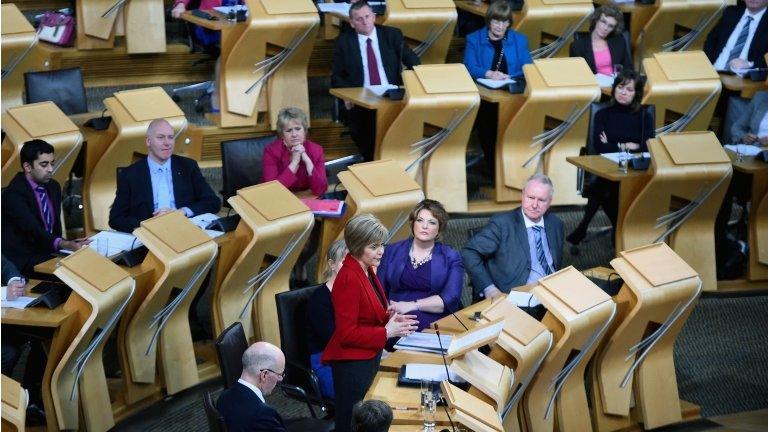Scotland Bill amendments outlined by UK government
- Published
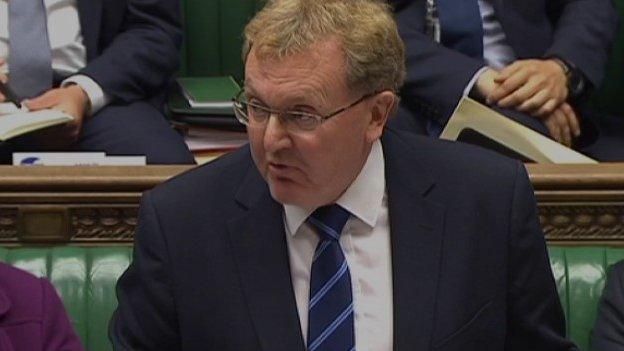
David Mundell said the bill delivered the Smith Commission recommendations
The UK government has outlined a series of Scotland Bill amendments which it has said shows it is delivering on its vow of more powers for Holyrood.
Scottish Secretary David Mundell said the bill will turn the Scottish Parliament into one of the world's most powerful devolved assemblies.
The Scottish government said the changes "continue to fall short of delivering the Smith report in full".
Gordon Brown, who orchestrated the Vow, said it had been delivered.
A House of Commons debate on the bill will take place next week.
The bill follows the Smith Commission review of devolution after last year's Scottish independence referendum.
The new powers are due to come into force from April 2017, but the SNP government at Holyrood has threatened to block the bill if it believes changes to the way Scotland is funded would see it lose out.
The UK government has previously used its majority in the House of Commons to block amendments proposing greater powers for Holyrood that had been tabled by the SNP and Labour.
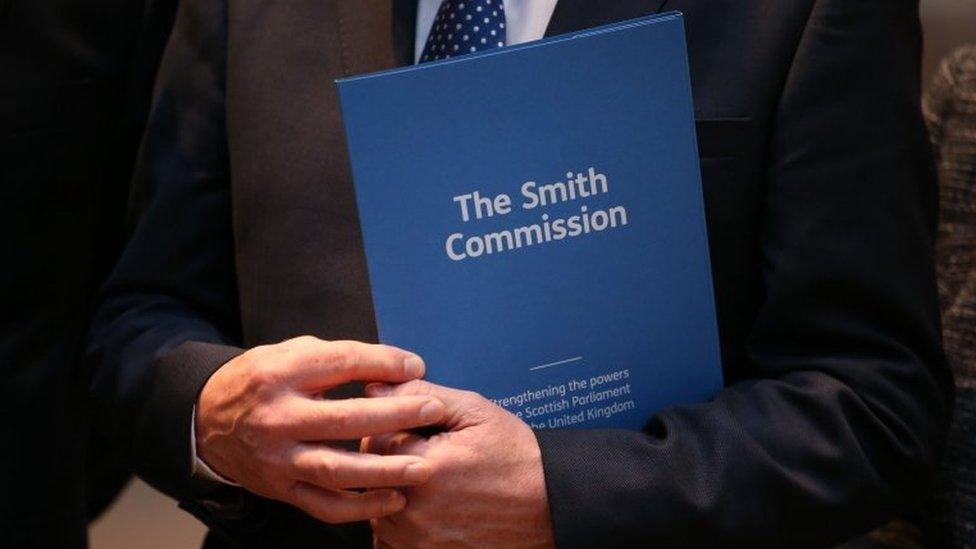
The UK government said its own amendments to the Scotland Bill would include:
An amendment to strengthen the permanence of the Scottish Parliament; will include a provision that the Scottish Parliament or government will not be abolished without the agreement of the Scottish people through referenda
Further flexibility to the Scottish Parliament on benefits in relation to carers, and will enable the Scottish Parliament to legislate to provide for forms of non-financial assistance with a view to reducing maternity expenses, funeral expenses or expenses for heating in cold weather. There will no longer be a cap on the amount of discretionary financial assistance an individual who is in receipt of a reserved benefit can receive to assist with rental costs
Universal Credit will remain a reserved benefit to be administered and delivered by the Department for Work and Pensions, and Scottish ministers to make decisions about varying the housing costs within Universal Credit for claimants who rent their homes, as well as deciding when to pay those housing costs direct to landlords.
Mr Mundell had earlier told BBC Scotland there would be "about 80 amendments" to the bill, but conceded that some of them were "very technical amendments in terms of the changing of commas, apostrophes and these sort of things".
He added: "I would say that about half of them are significant changes and half of them are technical. I think the most significant change is putting on the face of the bill that the Scottish Parliament will have the power to create new welfare benefits in devolved areas in accordance with clause 54 of the Smith Commission agreement."
'Agreed measures'
Mr Mundell again denied a claim by the Scottish government that the Scotland Bill gave the UK government a "veto" over the Scottish Parliament's new welfare powers, but said he had listened to the concerns and found a "better wording" for how the two governments could work together.
He said: "Because Universal Credit will remain a reserved benefit there will need to be a working with the UK government in terms of the practical delivery.
"The DWP doesn't have any say over the policy areas which are devolved, it will be entirely for the Scottish government and Scottish Parliament to determine what policies it pursues.
"It needs to inform the DWP of their decisions and then they need to have an agreed timescale. These are administrative measures - they are not policy measures. The policy decisions will all be at Holyrood."

Deputy First Minister John Swinney said a number of welcome improvements had been made to the bill but added that there were remaining significant weaknesses, including on welfare benefits.
Mr Swinney claimed the Scotland Bill:
Does not codify the Sewel Convention as it has operated since 1999
There remain restrictions on the Scottish Parliament's powers to make "all matters relating to the arrangements and operations of the Scottish Parliament and Scottish government"
The UK government can still effectively veto the exercise of devolved powers over Universal Credit and there are constraints in the devolution of social security discretionary payments
There is not yet an amendment to give the Scottish Parliament new powers to create benefits in devolved areas
There is not full devolution of Crown Estate as Fort Kinnaird in Edinburgh is not included
There are significant restrictions on employment support, particularly the restriction to programmes that last at least 12 months.
Mr Swinney added: "The sole purpose of the Scotland Bill is to implement the Smith Commission in full. In June, I proposed amendments to do that.
"Today's amendments are a welcome admission that the bill, as published, did not deliver Smith, despite UK government claims to the contrary. Unfortunately the set of amendments the UK government have promised today still fail to deliver Smith, and still fail Scotland.
"In areas such as social security, employment support and the Crown Estate, the Scotland Bill does not fully devolve new powers and restricts the ability of future Scottish governments to exercise power without interference."
'Clear intention'
Former prime minister Gordon Brown, who orchestrated the Vow, said the amendments tabled to the bill had resulted from Labour pressure - and meant that the bill delivered the Vow.
He said: "Major Conservative amendments tabled today to the Scotland Bill would mean that, if passed into law, the Smith Commission recommendations - which arose from The Vow, signed by the three main UK party leaders in September, 2014 - have now been delivered and Scotland can now develop its own social model, including repealing the Tory tax credit cuts.
"Labour has set out its clear intention to repeal the tax credit cuts and the Scottish Parliament can now build, out of the basic UK welfare system, our own social model and create a more socially-just Scotland.
"It is now time to move on from talking about new powers to using the new powers. Now that the Smith Commission proposals are being delivered, the Scottish government should focus on delivering for the people of Scotland."
- Published2 November 2015
- Published14 October 2015
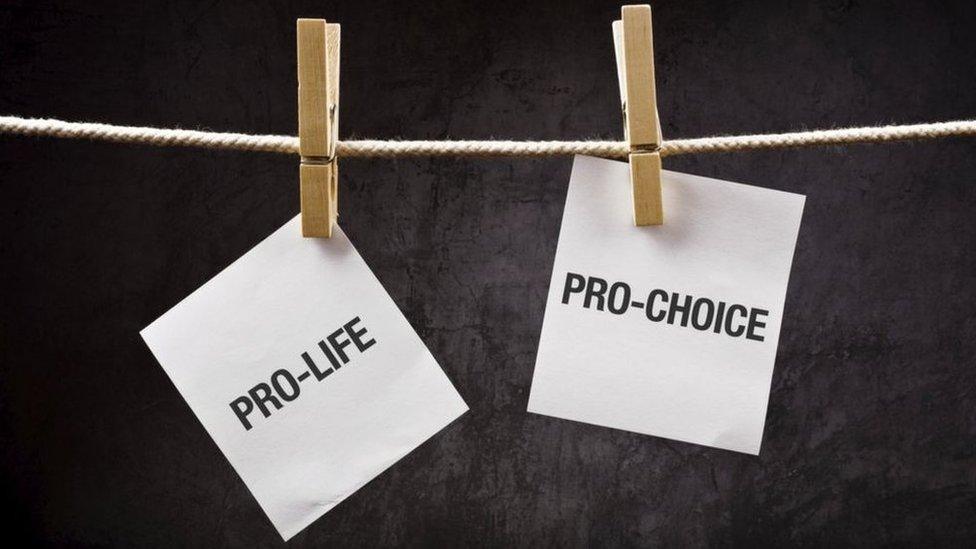
- Published20 September 2015
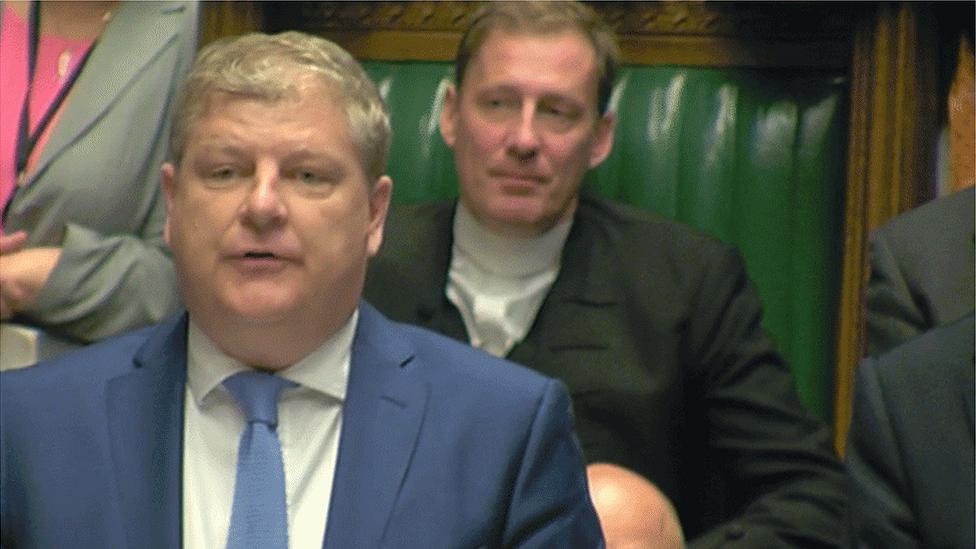
- Published27 November 2014
